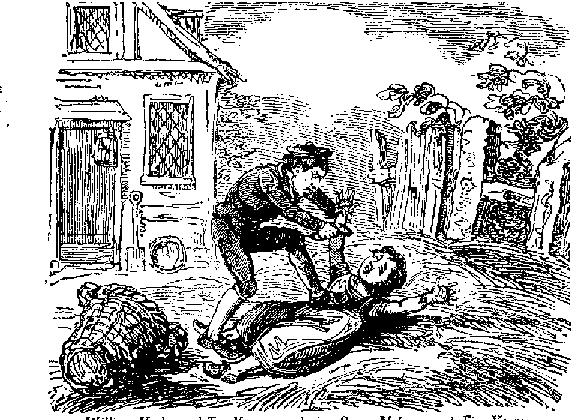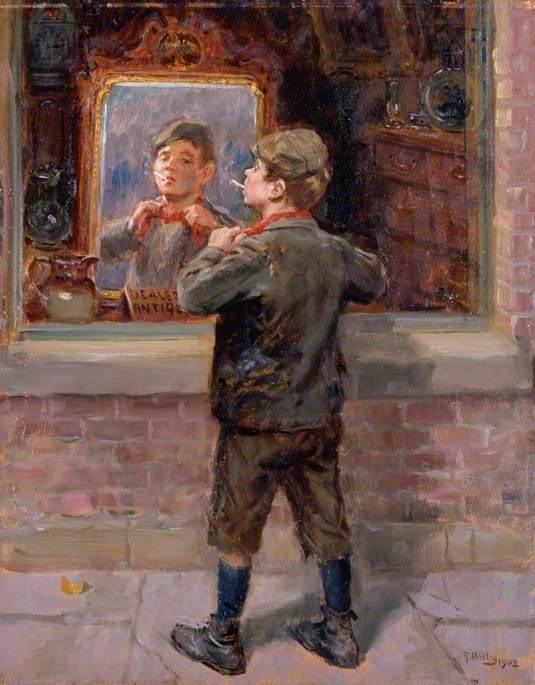The United Nations has designated 4 May as International Anti-Bullying Day when the world pledges to end bullying in schools. This year it can be commemorated on Monday 5 May in schools. UNESCO Member States declared the first Thursday of November as the International Day against Violence and Bullying at School, Including Cyberbullying. Until it is eradicated, we can never have enough anti-bullying days.
Victims of school bullying can turn around and kill the children who bullied them. This warning does not justify the killing, nor does it exonerate the bully, but it is a call for action to eradicate this scourge. There is a misconception that all serial killers were physically abused by their parents as children. Many were, but not all. But what is true, is that all of them were neglected by their parents and most of them were bullied at school. It is not difficult to find traces of bullying in the backgrounds of school massacres, mass murders and serial murder.
Adolescence, the Netflix series trending currently, tells the fictional story of a 13-year-old boy, Jamie Miller, who kills a fellow pupil, a girl called Katie. The series shines a spotlight on the underlying dark current of manopshere, a varied collection of websites, blogs, and online forums promoting ‘masculinity’, misogyny and opposition to feminism and the effect these influencers have on young boys. Jamie Miller repetitively says: “I did nothing wrong”, justifying the killing of a girl who bullied and rejected him. In the last episode of Adolescence, the focus is on Jamie’s family. Clearly his parents loved him and believed they gave him a good middle-class life. The last scene captures Jamie’s father, Eddie Miller sobbing: “We could have done better.”

The theme of justified femicide, even among children, as fictionalised in Adolescence sadly is not new. In 1748, ten-year-old William York killed five-year-old Susan Matthew. One night William soiled the bed they shared in the Eyke Workhouse and this upset Susan who became sulky. William’s solution to her “not liking him” was to kill her. In Adolescence, the character Jamie is frantically concerned that his forensic psychologist might not like him, even after he had threatened her. William was sentenced to death, but the execution was put off until he became of age and then he was conscripted into the navy.

In November 1998, 14-year-old Joshua Earl Patrick Phillips of Jacksonville, Florida, and eight-year old Madelyn Rae Clifton were playing baseball outside his home while his parents were not at home. Joshua’s abusive father, Steve, was a drug addict and an alcoholic and he particularly disliked little girls and beat his wife, displaying a misogynistic character. Joshua accidently threw the ball into Madelyn’s eye causing her to scream and bleed. When she did not stop, he panicked and fearing his father’s wrath, he dragged her into the house and then bludgeoned her with the baseball bat and hid her under his bed. Steve returned home and Joshua greeted him. When he returned to his bedroom, he found Madelyn was not dead yet and he heard her moaning under the bed. So he lifted the mattress and slit her throat and stabbed her seven times with a knife. Joshua assisted the police and volunteers to search for Madelyn for six days. Joshua explained his behaviour: “I was putting myself in a fantasy world that nothing had happened. That was my defence mechanism for everything when I was a kid. I never made the decision … to ignore it. I just did.” In Adolescence, Jamie, who was arrested at home sleeping in his bed the same night of the murder, also claims his innocence – “I didn’t do it. I did nothing wrong”. Joshua was sentenced to life imprisonment without the possibility of parole.

A year later in 1999, 12-year-old Lionel Alexander Tate of Broward County, Florida, battered his cousin, six-year-old Tiffany Eunick to death, while his mother was upstairs in their home. Tiffany had a fractured skull, lacerated liver, fractured rib, and swollen brain. Her legs, feet, and neck all had serious bruises tantamount to being hit by a speeding car. The judge described his actions as cold, callous and indescribably cruel.
In Adolescence the investigation reveals that Jamie had been chronically bullied at school and on Instagram Katie had called him ugly and an incel, which sets the stage for exposing general bullying, either physical or psychological, including cyberbullying in the school. Katie herself had been a victim of a boy who shared her semi-naked photo with other boys, who labelled her as flat-chested. Jamie had a crush on Katie thinking she was vulnerable about being teased so he planned to ask Katie out and expected her to agree. When she rejected him and shoved him away from her, he stabbed her to death in a fit of rage and aggrieved entitlement.
Rejection is when a person approaches, expecting a positive inclusion or acceptance and is then turned down. Due to long-term rejection the child is so focussed on protecting their battered and fragile ego, that they become fixated in their one-sided view of the world, and trapped in a ‘heavy’, endlessly ruminative thought-mode, which exacerbates the rejection sensitivity. This one-sided view of the world is shaped, exploited and enticed by misogynistic influencers operating within the manosphere, justifying murder.
The culture of incel features in the series. The term ‘incel’ has since been captured by the manopshere, a mostly online subculture of heterosexual males who define themselves as unable to find romantic or sexual partners despite desiring one, and who may blame, objectify and denigrate women and girls as a result. Thus, on social media platforms, incel followers began justifying acts of violence – creating an audience and applauding misogynistic, racist and violent acts – not just rhetoric, but acts – even to the extreme such as a series of mass murders.
However, researchers William Castello and David M Buss in their 2023- article: Why isn’t there more incel violence? in Adaptive Human Behaviour and Physiology found that 79 % of self-identified incels surveyed rejected violence. “Finding and retaining a mate represent persistent adaptive problems for humans. Modern humans descend from an unbroken evolutionary chain of ancestors who successfully solved these problems. It seems somewhat paradoxical, therefore, that there is a growing community of men who strongly identify with their perceived inability to solve these adaptive problems – involuntary celibates (incels).”
Incels focus strongly on physical attractiveness or non-attractiveness as the benchmark for women selecting male partners. The “80/20 rule”, an application of the Pareto principle, suggests that 80% of women desire the top 20% of most attractive men.

According to incel online lexicology Looksmaxxing refers to tips on enhancing physical appearance by methods ranging from a simple haircut, to taking steroids and working out, and undergoing plastic surgery at the extreme end.
It is a grave mistake to assume women mainly pick their partners based upon physical appearance. Most of them would list kindness, compassion and ability to communicate, as characteristics they prefer in serious life partners. When it comes to the physical, personal hygiene counts more than physical attractiveness.
Have the members of the manosphere considered the tendency to vent misogynistic beliefs, exert male supremacy, entice violence and blame women, may be the reason why women avoid these men or boys. Who wants to date someone that insults them and justifies raping and killing them? Where is the logic in that?
It is the lack of social skills, the lack of communication skills, of sharing, talking, compassion and just having fun together that push women away and puts them on the defence. Women do not want to feel unsafe in the company of men. It is a basic principle of psychologist Abraham Maslow’s second tier of the hierarchy of needs theory.
Shyness, lack of self-esteem and negative body image are all issues that can be addressed – in therapy, through positive peer support, accountable parenting, self-help videos, podcasts and workshops. Clinging on to them points to a narrative that smacks of victimhood, self-pity and emotional laziness. Doing good to and for others boosts self-esteem, confidence, efficacy and positivity attracts positivity. But are the incels willing to do the work, to aspire to self-actualization, not for the benefit of attracting a female, but to strive to become the best version of themselves? Now that would be an attractive quality, that would attract a quality woman.

The Adolescent Brain
‘Adolescence’ is an excellent title for this series. Research in neuropsychology indicates the adolescent brain differs from the adult brain. The prefrontal cortex – or so-called adult brain – only matures around 25 to 28 years of age. The neurons are there, but they are not yet connected, like the electrical wiring in a new house under construction. By discussing so-called difficult topics with adolescents, without judgement, the neurons are stimulated to connect – they have to THINK about it, to come up with solutions. When they are part of the solution, not the problem, they are empowered.
Another part of the brain responsible for developing a self-image compared to others is also still under construction in adolescent brains. This is why adolescents are so sensitive to rejection, fitting in and peer pressure – and why they commit suicide when they are teased, or kill each other when they are ostracised. In Britain 17-year old Vlad Nikolin-Caisley was tragically one of more than 50 adolescents encouraged by others on an online forum to commit suicide, in May 2024. Adolescents are so impressionable, peer pressure dependent and easily manipulated by influencers and role models, who are not held accountable for their irresponsibility.
Through fMRI scans, neuroscientists have established the pain-overlap principle showing that the emotional pain of ostracism or bullying, registers similar neuropaths as severe physical pain in the brain. Adolescents who are being ostracised by their peer groups, may experience this emotional pain to the same degree as third degree burns and it numbs their capacity to feel empathy and show compassion. Damaged Joshua and fictional Jamie clearly did not demonstrate any compassion for their victims, nor the families of their victims, or the aftermath their actions would have on their own families.
Adolescence writer Jack Thorne supports a ban on sales of smart phones to children under 16. Britain’s Online Safety Act of October 2023 requires websites to remove illegal and inciting content, and to protect vulnerable viewers, among others. I support stricter regulations, responsible credible reporting on sites and avoiding synthetic sensational click bait. As a psychologist I encourage open communication between parents and their children and non-judgemental discussion forums at schools. Adolescence illustrates how tragedy struck two average middleclass families. Jamie’s parents did not abuse him, they loved him, yet parents in retrospect admitting they could have done better, is just not good enough.
Top image: Boy hitting a girl by Klaas de Plaaggeest (1905) (Public Domain)
